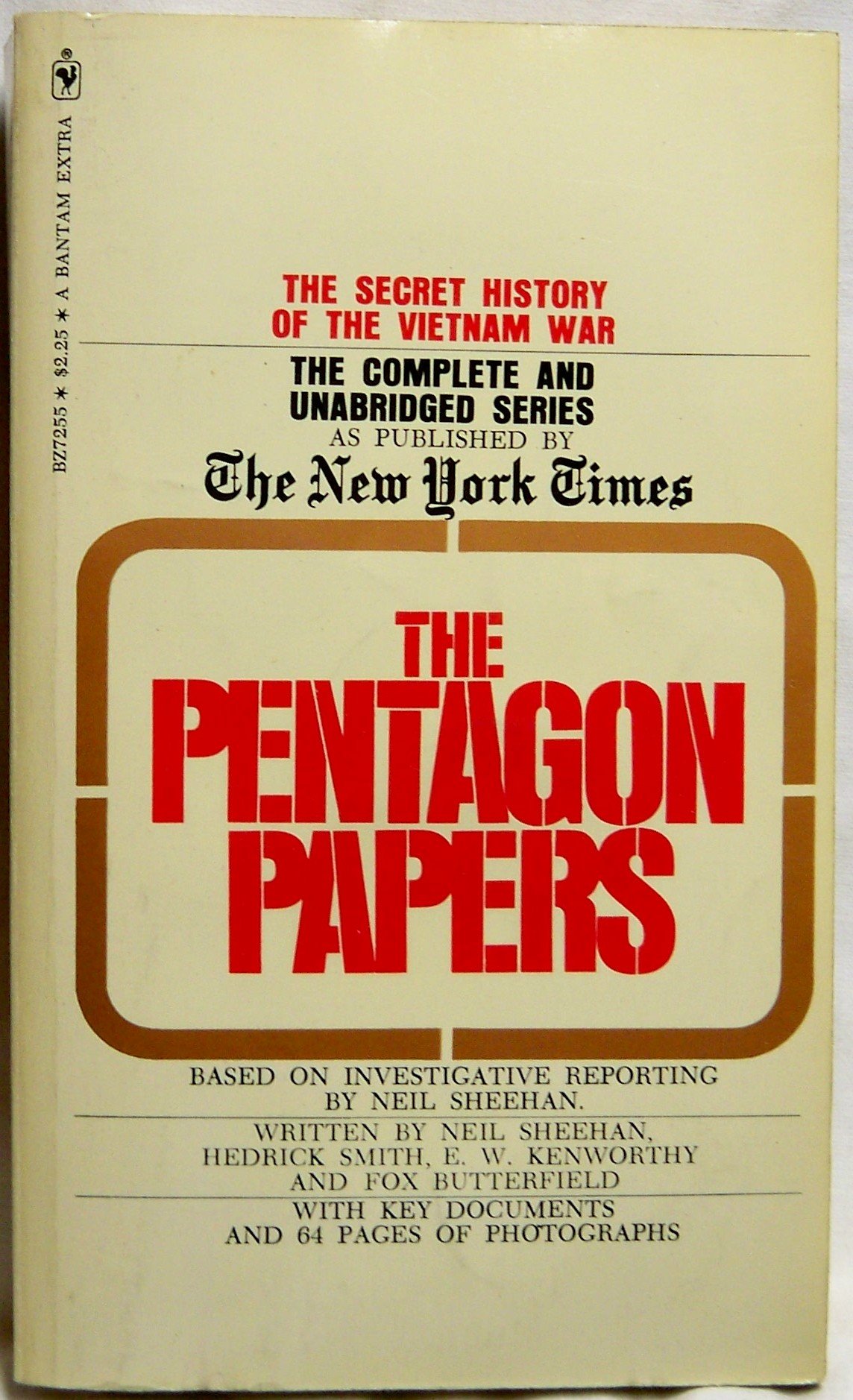
The Times knew the story was big. Sheehan and a few select colleagues sequestered themselves in the New York Hilton to sort through thousands of photocopied pages while Times management decided whether to risk publishing highly classified material. In March 1971, Ellsberg showed the study to Times reporter Neil Sheehan. McGovern suggested he provide his copies to either the New York Times or the Washington Post. But Ellsberg’s efforts were not entirely fruitless. in the hope that one of them would be willing to enter the Pentagon Papers into the Congressional Record. , Senator George McGovern , and Congressman Paul (Pete) McCloskey Jr. William Fulbright , Senator Charles Mathias Jr. Initially Ellsberg turned to members of Congress such as Senator J. After moving to the MIT Center for International Studies, he made the final decision to leak it. Over the course of several weeks in the fall of 1969, Ellsberg managed to sneak out and photocopy the study with the help of another former RAND employee. As the Nixon administration pursued its own policy in Vietnam, Ellsberg became increasingly frustrated, seeing a continuing pattern of deceit and escalation, and he began to consider leaking the study. The work confirmed what he already suspected: US involvement in Vietnam was based on systematic deception by the government. After returning to the United States to work for the RAND Corporation, he became a member of Gelb's task force. The story of the Pentagon Papers begins with Daniel Ellsberg, a defense analyst specializing in nuclear weapons strategy and counterinsurgency theory. Ellsberg had deep knowledge of Vietnam, having served in the Pentagon's International Security Affairs (ISA) division from 1964–65 then as an analyst in South Vietnam for two years. In 2010 Daniel Ellsberg, Les Gelb, and James Goodale discussed the Pentagon Papers at an event hosted by the Columbia Journalism Review. Nixon resolved to fight back with every tool at his disposal, making the fateful decision to break the law to achieve his ends. In his eyes, the publication of the Pentagon Papers confirmed the existence of a radical, left-wing conspiracy throughout the government and media, whose purpose was to delegitimize him and topple his administration. Nevertheless, the leak occurred during the Nixon presidency, convincing him that he was engaged in the battle of a lifetime-to protect his presidency as well as the nation. Instead much of it appeared in the New York Times, and its publication became a turning point in the presidency of Richard Nixon-an ironic twist considering the Pentagon Papers covered a period when Nixon himself was not in power. Historian John PradosĪs with most classified documents, McNamara’s detailed study might have gathered dust for decades. a body of authoritative information, of inside government deliberations, that demonstrated beyond questioning the criticisms that antiwar activists had been making for years not only were not wrong but, in fact, were not materially different from things that had been argued inside the US government.


Johnson's had willingly deceived the American people about the nation's involvement in Vietnam. Most important, however, the highly classified study revealed that administrations from Harry S. United States-Vietnam Relations, 1945–1967 was a comprehensive documentary and analytical record from the end of World War II through the aftermath of the Tet Offensive of early 1968. The cover of a Pentagon Papers volumeĪ year and a half later, Gelb’s team of 36 military personnel, historians, and defense analysts from the RAND Corporation and Washington Institute for Defense Analysis had produced roughly 7,000 pages comprising 47 volumes. Gelb, the director of Policy Planning and Arms Control for International Security Affairs at the Department of Defense. Questioning the decision-making process that had led to such deep US involvement, McNamara initiated a comprehensive analysis of post-1945 policy in the region. So began the creation of what would come to be called the "Pentagon Papers."īy June, the Vietnam Study Task Force was officially at work under the direction of Leslie H. McNamara was struggling with a mounting sense of frustration over the Vietnam War. In early 1967, Secretary of Defense Robert S.


 0 kommentar(er)
0 kommentar(er)
